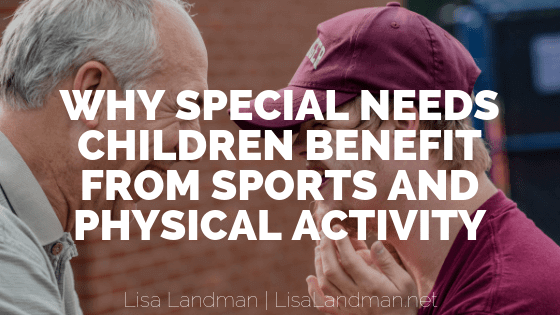
Adults with Intellectual Disabilities and COVID-19
There has been much attention paid to specific demographics when it comes to COVID-19 like the elderly or Millennial’s. But there is a large group of individuals that have yet to be addressed. More than six million Americans have been diagnosed with Intellectual and Developmental Disabilities (IDD). It is estimated that another 3 million or more Americans fall somewhere on the autism spectrum.
Individuals with IDD generally have limitations with their intellectual functioning, affecting their social and practical skills. Some individuals on the autism spectrum may display issues during social interactions, hyper-focus on specific things or engage in repetitive behaviors. Adults with IDD can also be very routine-oriented. The disruption of COVID-19 to their daily schedules can be devastating.
Many individuals with IDD rely heavily on caregivers to assist with completion of their activities of daily living (ADL). ADLs are the basic tasks that must be accomplished daily for an individual to thrive such as brushing your teeth, showering, eating, even using the bathroom.
With COVID-19, the quarantine and social distancing, caring for adults with IDD has presented some challenges. Sources of basic care like transportation and food prep may have been suspended. Social activities may have been cancelled. High functioning adults with jobs may have been furloughed. Routines and structure may have lapsed due to the new “normal” that so many have had to adjust to in their lives.
Further, many of the adults with IDD have underlying medical and/or psychological health conditions that could make them vulnerable during the pandemic. The CDC has extraordinarily little to say directly to individuals with IDD other than the recommendation of following the general COVID-19 preventative measures that are currently in place. Sadly, caregivers have minimal resources available to them. Without the proper support, an entire vulnerable population is at risk. The CDC needs to develop guidelines that speak directly to the unique challenges that individuals with IDD and their caregivers face. Programs must be developed, and funds must be allocated to support the individuals and the caregivers that enrich their lives, during the pandemic and beyond.

Preparing for Halloween with a Special Needs Child
Most parents with special needs children agree that holidays can pose unique challenges, and Halloween is certainly no exception. There are many parts of the day that can be difficult for children with special needs to enjoy. However, with a little planning and preparation, parents can find unique and creative ways to keep Halloween from getting too scary!
Consider the Costume
There are a dizzying array of costumes available, but parents of children with special needs should keep a few things in mind when helping their child pick their Halloween apparel. If your child has physical needs or uses assistive devices, make sure they can get around comfortably with their costume on. Capes or long robes may be easy to trip over, or masks might make it too difficult to see. While many Halloween costumes are dark in color, it may be a safer choice to choose a brighter, more visible costume. Adding reflective tape can also make trick-or-treaters more visible to motorists. Making sure the costume is warm enough for a late October night can also help ensure a positive experience.
Re-Think Traditions
Many parents of children with special needs find that holidays are more enjoyable if they consider what traditions their child would enjoy and skip the rest. A child with sensory issues might find it just too difficult to enjoy trick-or-treating to houses with loud noises, flashing lights, and sudden surprises. Parents can instead reinvent the holiday to feature traditions that their child can truly enjoy. Some choose to host a small party at their house where guests wear costumes, play simple games, and feast on allergy-friendly treats. Another option is to attend daytime events or parties at a local library or community center.
Practice Makes Perfect!
Special needs children often benefit from understanding what’s coming next and practicing what’s expected of them. For instance, having the child wear the costume the week before can help them get used the new experience. If trick-or-treating is on the schedule, parents can walk with their children around the neighborhood reminding them of safety rules such as staying on the sidewalk or only crossing the street with an adult. Children might even benefit from practicing the trick-or-treating script with a friendly neighbor before the big day. Preparing in this little ways may make a big difference in a child’s ability to participate.
Lisa Landman has a passion for helping others and has worked with special need adults throughout her career. Learn more about her professional work or check out her Twitter!

Why Special Needs Children Benefit from Sports and Physical Activity
Children with special needs can benefit from routine physical activity from exercise programs or team sports. The parents of a special needs child should make sure that she participates in a school’s physical education class or a local park’s recreational programs.
Benefit 1: Improving the Body’s Muscle Strength
A child with special needs should engage in physical activity at least three times a week to build her muscle strength in her arms, legs, and torso. Activities such as playing baseball can help a child use her shoulders and arms to hit a ball before using her legs to run around a baseball field.
Benefit 2: Socializing Skills Will Improve
By participating in team sports, a special needs child can improve her socialization skills with her peers, helping her to increase her verbal communication and body language. A child may need to talk to her other team members during a game to understand what the other team members want to achieve.
Benefit 3: Increase Body Coordination
Physical activity can increase a child’s coordination to improve unusual walking gaits or poor sitting postures. Exercise routines that use calisthenics or yoga are especially beneficial for the body. Improving body coordination in a special needs child can take several months of physical exercise.
Benefit 4: Developing Confidence Levels
Participating in sports with other classmates can help with the development of mental confidence for a special needs child. A child who doesn’t excel in academic subjects might have better success with sports such as basketball. Parents will notice the increase in confidence by the facial expressions of their child while she plays a game of soccer.
Benefit 5: Reducing Spasticity in the Muscles and Joints
Some types of medical conditions can cause spasticity in the joints and muscles, but with regular physical activity, the joints or muscles have improvements that can help a child to stand and walk better. Participating in activities that require running, jumping or throwing a ball can improve the condition of the legs, shoulders, and arms.
Benefit 6: Maintaining the Appropriate Weight
When a special needs child has a problem with gaining weight, she can benefit from physical activity. It is essential for a special needs child to burn her excess calories to avoid weight problems that can remain during adulthood.
Lisa Landman has a passion for helping others and has worked with special need adults throughout her career. Learn more about her professional work or check out her Twitter!
About Lisa Landman
Lisa Landman earned her doctorate in psychology from Fordham University in 2005. One of the reasons why Lisa pursued psychology is due to her interest in helping others. Throughout her life, Lisa has spent time helping the most vulnerable populations of society which includes animals. She and her husband have rescued six different dogs over the years, and Lisa volunteers with the Special Olympics. Lisa particularly cares about adults with disabilities since they’re a population that tends to face increased vulnerability as they age.
Previously in her career, Lisa Landman worked as a Residential Coordinator at Bishop Grady Villas which describes itself as a “place where adults with disabilities are able to thrive and achieve their dreams” (Bishop Grady Villas Homepage). The best part of working at Bishop Grady was getting to know the residents. Lisa found each resident to be an amazing person with a huge heart, a caring attitude, and a wonderful personality. She particularly admired the residents’ attitudes toward life. Even with their daily struggles, they approached each day with optimism.
The most difficult aspect of working at Bishop Grady Villas was the lack of funding. A large amount of the residents are on the waitlist to receive benefits from the government which Lisa Landman finds unacceptable. If the residents can’t get government assistance, then their families must pay for them to live there. Sadly, there are many adults like the residents of Bishop Grady Villas who don’t have families to help them receive the sort of attention and care they need. This unfortunate reality is one of the reasons why Lisa is motivated to assist adults with disabilities as much as possible.

Lisa Landman served as an assistant basketball coach in early 2017. Helping the Bishop Grady residents during their weekly practices was a lot of fun. Seeing how much fun the residents have during games never failed to make Lisa smile. Lisa plans to assist with more Special Olympics events in the future. Since the Special Olympics is a nationwide organization, anyone can get involved. Helping adults with disabilities is a great way to spend one’s time, and Lisa encourages everyone she knows to get involved in some manner.
Professional Overview
Over the years Lisa Landman has worked in a variety of areas such as human resources and teaching. For eleven years she owned a fitness center where she was involved in nearly every aspect of the business. Presently, she’s working with Costech Lab as the Director of Operations. Lisa’s diverse work experience means that she can thrive in nearly any work situation. She looks forward to continuing to pursue entrepreneurial projects while helping others at the same time.
